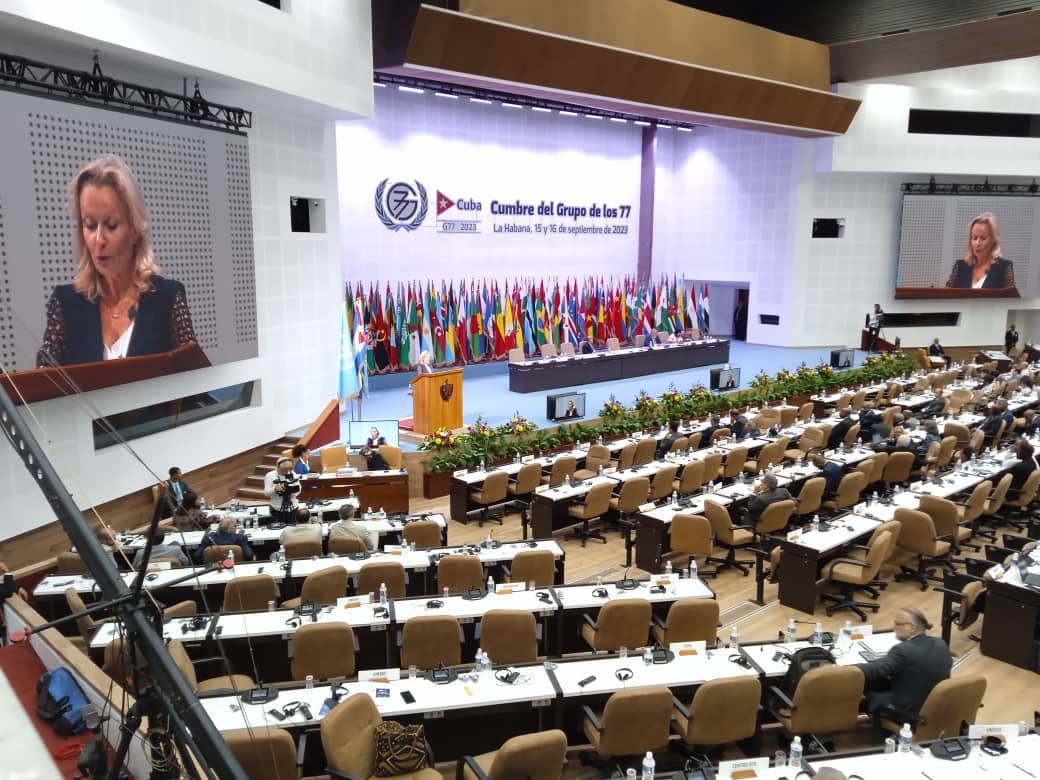In the final 46-point document, passed in the last section of the Summit, held at the Havana International Conference Center, member states stressed that such actions not only undermine the principles enshrined in the United Nations Charter and international law. They really constitute a serious obstacle to the progress in science, technology and innovation, as well as the full achievement of economic and social development, particularly in developing countries.
The G77+China, on the other hand, harped on that unilateral coercive measures have a negative and devastating impact on human rights, including the right to development and the right to food.
Such actions also hinder affected countries’ access to health care, humanitarian aid and supplies, and nationally owned assets.
Member states also strongly condemned technological monopolies and other unfair practices which, they said, hinder the technological progress of developing countries.
In this regard, they agreed that States that monopolize and control information and communication technologies, including Internet, should not use advances in these areas as tools of containment and suppression of the legitimate economic and technological development of other States.
“We call on the international community to foster an open, fair, inclusive and non-discriminatory environment for scientific and technological development,” the member states remarked.
They also warned of the concern that, at the halfway point in the implementation of the 2030 Agenda for Sustainable Development, the world, particularly developing countries, remain far from achieving the Sustainable Development Goals (SDGs).
pll/lam/may









